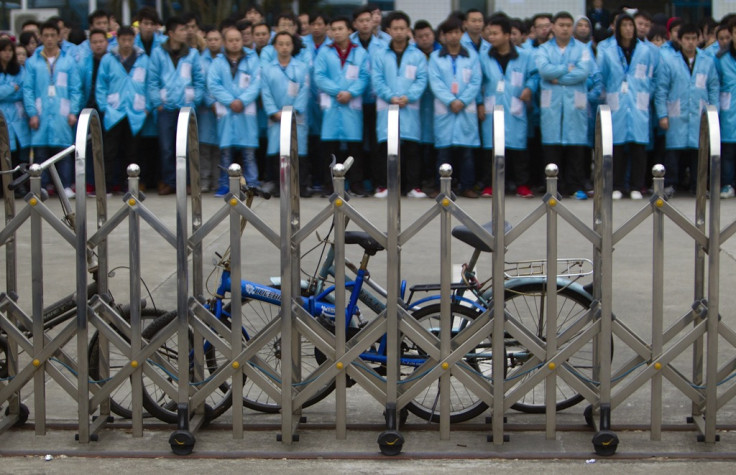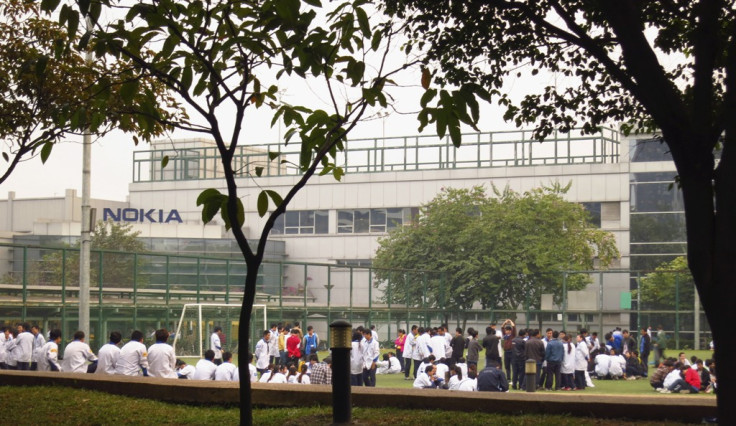China IBM Wildcat Strike Latest Display of Workers' Power

A wildcat strike at an IBM factory in southern China is the latest demonstration of workers' collective power in the face of ineffectual unions, and another warning to multinationals operating in the country.
The strike, which continued into 9 March, is the latest occurrence of industrial activism that has emerged, just as growth in the world's second-largest economy has slowed.
Independent unions are banned in China. The state-backed All-China Federation of Trade Unions and its affiliates have a reputation for being incompetent and often siding with management.
Meanwhile, a worsening labour shortage has shifted the balance of power in labour relations in China. Smartphones and social media have helped factory workers coordinate plans and has made them more aware than ever of the evolving environment, experts said.
"Chinese workers, after being exploited for so long, are now more and more aware of their rights and united. They have more of an idea of collective action," labour lawyer Duan Yi told Reuters.
"Workers know they have greater power," Geoffrey Crothall, a China labour expert with China Labour Bulletin told the news agency.
The union exists in name only. It's useless
"Because there's no real channel of communication at these workplaces just about the only thing the workers can do is go out on strike and demand that management address their grievances," Crothall added.
"In most cases the union plays no positive role and sometimes it's even a negative role," he said.
Chen, a striking IBM factory worker, said "the union exists in name only. It's useless."
Wildcat Strikes
More than 1,000 workers took to the streets last week at the IBM factory in Shenzhen, bordering Hong Kong, after managers on 3 March announced the terms of their transfer to the new owners - Chinese PC maker Lenovo Group. Lenovo agreed in January 2014 to pay $2.3bn (£1.4bn €1.6bn) for IBM's low-end server business.
IBM said last week the terms offered to the workers at the International System Technology Company factory in Shenzhen were "comparable in aggregate to what they currently are receiving" and severance packages would be "equitable".
Lenovo has refused to comment.
A February 2014 report by advocacy group China Labour Bulletin said it had tallied 1,171 strikes and protests between June 2011 and December 2013. Many worker protests during that time in Guangdong province, a manufacturing hub where the IBM server factory is located, were triggered by the closure, merger or relocation of factories.

In November 2013, hundreds of employees walked off the job at a Nokia factory in Dongguan, near Shenzhen, complaining of changes following Nokia's sale of its mobile phone business to US-based Microsoft.
Lawyer Duan is seeking arbitration for a group of 70 Nokia workers who were laid off at the time.
In August 2013, 5,000 workers in the eastern Shandong Province went on strike to protest India-based Apollo Tyres planned $2.5bn acquisition of US-based Cooper Tire & Rubber. The deal collapsed but Cooper has been forced to lower operating profit by $29m in the third quarter following the work stoppage in China.
© Copyright IBTimes 2025. All rights reserved.






















